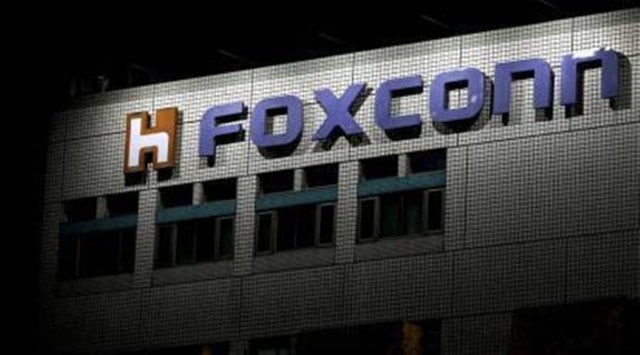Tata Group set to become first Indian iPhone maker
Written byAthik SalehJuly 11, 2023 |

Tata and Wistron could reach an agreement by August
Tata Group has been in talks to acquire Taiwanese electronics giant Wistron's iPhone assembly plant for a while.According to Bloomberg, the Indian conglomerate is close to sealing the deal, with the two parties expected to reach an agreement as soon as August.The acquisition would be the first step toward Tata's ambitions to become the first Indian company to manufacture iPhones.
Tata Group has been in talks to acquire Taiwanese electronics giant Wistron's iPhone assembly plant for a while.According to Bloomberg, the Indian conglomerate is close to sealing the deal, with the two parties expected to reach an agreement as soon as August.The acquisition would be the first step toward Tata's ambitions to become the first Indian company to manufacture iPhones.
Tata will honor Wistron's commitment after the acquisition
Wistron's iPhone factory is located on the outskirts of Bengaluru, Karnataka. The factory is valued at over $600 million.Tata and Wistron have been involved in negotiations for about a year. The plant employs over 10,000 workers.After the acquisition, Tata will honor Wistron's commitment to ship at least $1.8 billion worth of iPhones in the fiscal year.
Foxconn pulls out of $19.5-billion chip plan with Vedanta, Govt asks it to set up independent unit
Foxconn and Vedanta signed a pact last year to invest $19.5 billion to set up semiconductor and display production plants in the western state of Gujarat, seeking to tap into the country's plans to become an electronics major.
Written by Soumyarendra Barik
New Delhi | Updated: July 11, 2023

"Foxconn is working to remove the Foxconn name from what now is a fully-owned entity of Vedanta," the electronics manufacturer said in a statement. (File Photo)
THE CENTRE has reached out to Taiwanese contract manufacturer Foxconn to set up a semiconductor fabrication facility independently in India after the company announced that it was pulling out of its joint venture with Vedanta to set up a $19.5 billion chip manufacturing plant in the country, The Indian Express has learnt.
In what is being seen as a setback to India’s chip-making ambitions, Foxconn on Monday said that it will not move forward on the joint venture with Vedanta, marking a clear fall-out between the two partners. India has identified chip-making as a key priority for future economic growth, hoping to capitalise on companies looking to diversify their operations from China.
“Foxconn is working to remove the Foxconn name from what now is a fully-owned entity of Vedanta. Foxconn has no connection to the entity and efforts to keep its original name will cause confusion for future stakeholders,” it said.
Last September, Vedanta and Foxconn had signed a memorandum of understanding with the Gujarat government to set up separate chip and display manufacturing plants in the state for an estimated $19.5 billion. The plant had triggered a political firestorm as Gujarat was picked over Maharashtra.
“We were aware that the joint venture between Vedanta and Foxconn was not going well, there were some differences and it became clear to us a few months ago that Foxconn wasgoing to pull out of it,” said a senior government official in Delhi, adding, “the government is in touch with Foxconn and is encouraging it to set up a fab independently.”
In Gujarat, a senior government official said: “The pull-out of Foxconn was being discussed for some time and it is on expected lines. There were disagreements with regard to technology, policy, priorities and leadership. However, they have not dropped their plan to set up a semiconductor unit in Gujarat. Only the joint venture with Vedanta has been called off”.
It is learnt that Vedanta’s heavy debt load had raised doubts about its ability to pay for manufacturing grade technology.
Foxconn, it is learnt, has hinted to the government that it could apply for India’s $10 billion dollar chip incentive scheme on its own, with technology from either STMicroelectronics or GlobalFoundries.
The government has maintained that Foxconn’s break-up with the joint venture will have no impact on India’s semiconductor fab plans. “It is not for the government to get into why or how two private companies choose to partner or choose not to, but in simple terms, it means both companies can and will now pursue their strategies in India independently,” Rajeev Chandrasekhar, Minister of State for Electronics and IT, said.
Last month, the Vedanta-Foxconn joint venture had reapplied for the chip incentive scheme, this time for a 40 nanometre (nm) process after its initial proposal to set up a 28 nm chip production plant failed to sign up a technology partner. Neither Foxconn nor Vedanta have the in-house technology to design and manufacture chips, and India’s scheme requires such entities to have a technology partner to plug that gap.
In a statement, Vedanta said that it has “lined up other partners to set up India’s first foundry”. “We will continue to grow our semiconductor team, and we have the licence for production-grade technology for 40 nm from a prominent Integrated Device Manufacturer (IDM). We will shortly acquire a licence for production-grade 28 nm as well,” the company said.
The government will evaluate Vedanta’s proposal. However, without Foxconn, the application is unlikely to move ahead, it is learnt.
Aside from Vedanta-Foxconn’s proposal, the Centre had received two other applications to set up a fab in India. However, both have faced difficulties, despite announcing manufacturing plants in the country.
ISMC, backed by Abu Dhabi-based Next Orbit and Israel’s Tower Semiconductor, has asked the Centre not to consider its proposal owing to a pending merger between Intel and Tower Semiconductor. The merger continues to be delayed more than a year after its first announcement.
The consortium had initially said that it would set up a $3 billion semiconductor fab in Karnataka. Their proposal, however, is not expected to move further until Intel’s merger with Tower is complete.
Singapore-based IGSS Venture’s proposal was not found to be up to the mark by the government’s advisory committee and, as a result, is on the backburner, it is learnt.
With inputs from Avinash Nair in Ahmedabad
Foxconn and Vedanta signed a pact last year to invest $19.5 billion to set up semiconductor and display production plants in the western state of Gujarat, seeking to tap into the country's plans to become an electronics major.
Written by Soumyarendra Barik
New Delhi | Updated: July 11, 2023

"Foxconn is working to remove the Foxconn name from what now is a fully-owned entity of Vedanta," the electronics manufacturer said in a statement. (File Photo)
THE CENTRE has reached out to Taiwanese contract manufacturer Foxconn to set up a semiconductor fabrication facility independently in India after the company announced that it was pulling out of its joint venture with Vedanta to set up a $19.5 billion chip manufacturing plant in the country, The Indian Express has learnt.
In what is being seen as a setback to India’s chip-making ambitions, Foxconn on Monday said that it will not move forward on the joint venture with Vedanta, marking a clear fall-out between the two partners. India has identified chip-making as a key priority for future economic growth, hoping to capitalise on companies looking to diversify their operations from China.
“Foxconn is working to remove the Foxconn name from what now is a fully-owned entity of Vedanta. Foxconn has no connection to the entity and efforts to keep its original name will cause confusion for future stakeholders,” it said.
Last September, Vedanta and Foxconn had signed a memorandum of understanding with the Gujarat government to set up separate chip and display manufacturing plants in the state for an estimated $19.5 billion. The plant had triggered a political firestorm as Gujarat was picked over Maharashtra.
“We were aware that the joint venture between Vedanta and Foxconn was not going well, there were some differences and it became clear to us a few months ago that Foxconn wasgoing to pull out of it,” said a senior government official in Delhi, adding, “the government is in touch with Foxconn and is encouraging it to set up a fab independently.”
In Gujarat, a senior government official said: “The pull-out of Foxconn was being discussed for some time and it is on expected lines. There were disagreements with regard to technology, policy, priorities and leadership. However, they have not dropped their plan to set up a semiconductor unit in Gujarat. Only the joint venture with Vedanta has been called off”.
It is learnt that Vedanta’s heavy debt load had raised doubts about its ability to pay for manufacturing grade technology.
Foxconn, it is learnt, has hinted to the government that it could apply for India’s $10 billion dollar chip incentive scheme on its own, with technology from either STMicroelectronics or GlobalFoundries.
The government has maintained that Foxconn’s break-up with the joint venture will have no impact on India’s semiconductor fab plans. “It is not for the government to get into why or how two private companies choose to partner or choose not to, but in simple terms, it means both companies can and will now pursue their strategies in India independently,” Rajeev Chandrasekhar, Minister of State for Electronics and IT, said.
Last month, the Vedanta-Foxconn joint venture had reapplied for the chip incentive scheme, this time for a 40 nanometre (nm) process after its initial proposal to set up a 28 nm chip production plant failed to sign up a technology partner. Neither Foxconn nor Vedanta have the in-house technology to design and manufacture chips, and India’s scheme requires such entities to have a technology partner to plug that gap.
In a statement, Vedanta said that it has “lined up other partners to set up India’s first foundry”. “We will continue to grow our semiconductor team, and we have the licence for production-grade technology for 40 nm from a prominent Integrated Device Manufacturer (IDM). We will shortly acquire a licence for production-grade 28 nm as well,” the company said.
The government will evaluate Vedanta’s proposal. However, without Foxconn, the application is unlikely to move ahead, it is learnt.
Aside from Vedanta-Foxconn’s proposal, the Centre had received two other applications to set up a fab in India. However, both have faced difficulties, despite announcing manufacturing plants in the country.
ISMC, backed by Abu Dhabi-based Next Orbit and Israel’s Tower Semiconductor, has asked the Centre not to consider its proposal owing to a pending merger between Intel and Tower Semiconductor. The merger continues to be delayed more than a year after its first announcement.
The consortium had initially said that it would set up a $3 billion semiconductor fab in Karnataka. Their proposal, however, is not expected to move further until Intel’s merger with Tower is complete.
Singapore-based IGSS Venture’s proposal was not found to be up to the mark by the government’s advisory committee and, as a result, is on the backburner, it is learnt.
With inputs from Avinash Nair in Ahmedabad
No comments:
Post a Comment